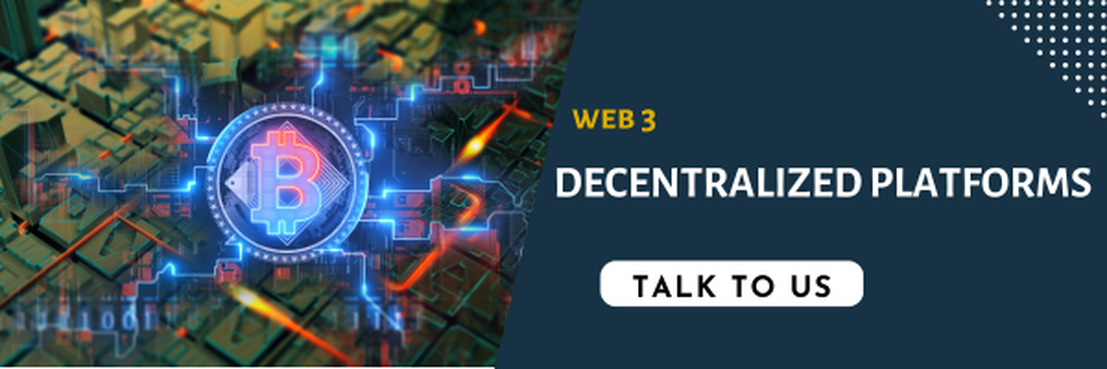An alternative to the traditional financial markets, decentralized platforms give users control over their wallets and the freedom to lend, borrow, or trade their assets as they desire.
In a chain, each block has a specific storage capacity and contains information about the previous block, such as transaction details and a hash—a unique cryptographic code that allows tracking of any changes made to the block.
Decentralized finance or DeFi is an ecosystem of applications, platforms, and technologies enabling financial operations with no intermediaries involved. In other words, DeFi is an autonomous system that is independent of banks, exchanges, and other financial institutions. The key features of DeFi include:
Transactions over the chain is done as smart contracts. These are used to fix the terms of a transaction between the participants. But unlike a written agreement, a smart contract is a software program, so all the processes here are automated. The participants don’t need to control the execution of the contract, track the transactions, and involve third-party experts.
Smart contracts, also called transaction protocols, can be concluded between anonymous parties and can stipulate all the conditions, requirements, and workflows necessary to complete the transaction. Blockchain-based smart contracts are decentralized applications, so the information about the transaction is stored in each node of the network. Once the contract is deployed on a blockchain, it cannot be amended or annulled.
Decentralized platforms set the stage for DeFi transactions. Here, people can perform a variety of operations with digital funds, among which are:
Decentralized platforms rely on blockchain networks, laying the groundwork for DeFi transactions. DeFi has a set of rules regulating activities that take place on the blockchain. These rules are specified in protocols created by developers and other blockchain contributors. The same protocols can be used across different networks. DeFi platforms and applications tap into blockchain protocols to establish their workflows.
DeFi platforms provide for transactions with different types of cryptocurrencies, such as coins. A token is another kind of crypto asset used in decentralized finance to meet the purposes of a particular project or ecosystem. Thus, each DeFi platform or blockchain network can issue its tokens to perform operations within the ecosystem. There can be:
In a chain, each block has a specific storage capacity and contains information about the previous block, such as transaction details and a hash—a unique cryptographic code that allows tracking of any changes made to the block.
Decentralized finance or DeFi is an ecosystem of applications, platforms, and technologies enabling financial operations with no intermediaries involved. In other words, DeFi is an autonomous system that is independent of banks, exchanges, and other financial institutions. The key features of DeFi include:
- Blockchain. The technology makes the system decentralized and allows users to interact with each other directly and anonymously.
- Smart contract. Agreements fixed in smart contracts help users conduct transactions automatically and securely.
- Cryptocurrency. Crypto serves as a medium of exchange intended to perform financial operations.
Transactions over the chain is done as smart contracts. These are used to fix the terms of a transaction between the participants. But unlike a written agreement, a smart contract is a software program, so all the processes here are automated. The participants don’t need to control the execution of the contract, track the transactions, and involve third-party experts.
Smart contracts, also called transaction protocols, can be concluded between anonymous parties and can stipulate all the conditions, requirements, and workflows necessary to complete the transaction. Blockchain-based smart contracts are decentralized applications, so the information about the transaction is stored in each node of the network. Once the contract is deployed on a blockchain, it cannot be amended or annulled.
Decentralized platforms set the stage for DeFi transactions. Here, people can perform a variety of operations with digital funds, among which are:
- Lending and borrowing
- Exchanging
- Trading
- Earning interest
- Insuring
Decentralized platforms rely on blockchain networks, laying the groundwork for DeFi transactions. DeFi has a set of rules regulating activities that take place on the blockchain. These rules are specified in protocols created by developers and other blockchain contributors. The same protocols can be used across different networks. DeFi platforms and applications tap into blockchain protocols to establish their workflows.
DeFi platforms provide for transactions with different types of cryptocurrencies, such as coins. A token is another kind of crypto asset used in decentralized finance to meet the purposes of a particular project or ecosystem. Thus, each DeFi platform or blockchain network can issue its tokens to perform operations within the ecosystem. There can be:
- Utility tokens (grant access to the platform or network, making its products and services available to the user)
- Security tokens (represent the ownership of the token holder and can be used as investments)
- Governance tokens (enable users to manage the project and make core decisions about the blockchain protocol by voting)

